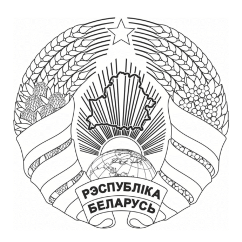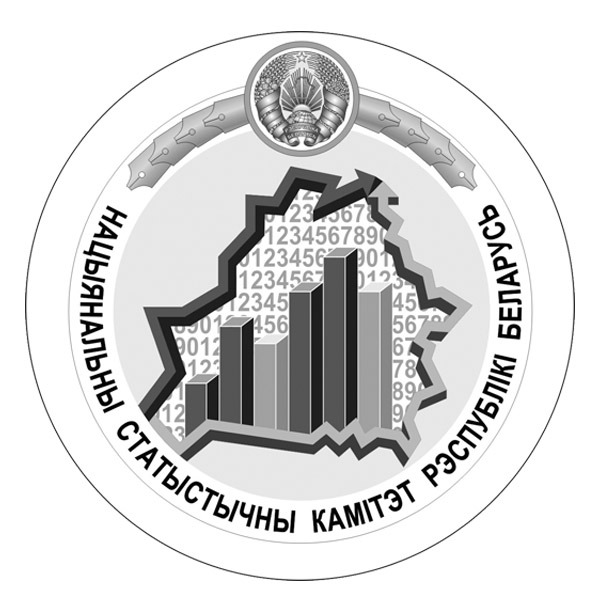Goal 14: Conserve and sustainably use the oceans, seas and marine resources for sustainable development
|
Global level indicators |
Tier at global level |
National indicators |
National agency responsible for the indicator |
|---|---|---|---|
|
TARGET 14.1. By 2025, prevent and significantly reduce marine pollution of all kinds, in particular from land-based activities, including marine debris and nutrient pollution |
|||
|
14.1.1. (a) Index of coastal eutrophication; and (b) plastic debris density |
II |
14.1.1. Not relevant for Belarus |
|
|
TARGET 14.2. By 2020, sustainably manage and protect marine and coastal ecosystems to avoid significant adverse impacts, including by strengthening their resilience, and take action for their restoration in order to achieve healthy and productive oceans |
|||
|
14.2.1. Number of countries using ecosystem-based approaches to managing marine areas |
II |
14.2.1. Not relevant for Belarus |
|
|
TARGET 14.3. Minimize and address the impacts of ocean acidification, including through enhanced scientific cooperation at all levels |
|||
|
14.3.1. Average marine acidity (pH) measured at agreed suite of representative sampling stations |
II |
14.3.1. Not relevant for Belarus |
|
|
TARGET 14.4. By 2020, effectively regulate harvesting and end overfishing, illegal, unreported and unregulated fishing and destructive fishing practices and implement science-based management plans, in order to restore fish stocks in the shortest time feasible, at least to levels that can produce maximum sustainable yield as determined by their biological characteristics |
|||
|
14.4.1. Proportion of fish stocks within biologically sustainable levels
|
I |
14.4.1. Not relevant for Belarus |
|
|
TARGET 14.5. By 2020, conserve at least 10 per cent of coastal and marine areas, consistent with national and international law and based on the best available scientific information |
|||
|
14.5.1. Coverage of protected areas in relation to marine areas
|
I |
14.5.1. Not relevant for Belarus |
|
|
TARGET 14.6. By 2020, prohibit certain forms of fisheries subsidies which contribute to overcapacity and overfishing, eliminate subsidies that contribute to illegal, unreported and unregulated fishing and refrain from introducing new such subsidies, recognizing that appropriate and effective special and differential treatment for developing and least developed countries should be an integral part of the World Trade Organization fisheries subsidies negotiation[b] |
|||
|
14.6.1. Degree of implementation of international instruments aiming to combat illegal, unreported and unregulated fishing |
I |
14.6.1.1. Existence of regulatory legal acts regulating measures for the protection and rational use of fisheries objects and their habitat, as well as measures to combat violation of the Rules for Fishery and Fisheries Management |
Ministry of Agriculture and Food |
|
TARGET 14.7. By 2030, increase the economic benefits to small island developing States and least developed countries from the sustainable use of marine resources, including through sustainable management of fisheries, aquaculture and tourism |
|||
|
14.7.1. Sustainable fisheries as a proportion of GDP in small island developing States, least developed countries and all countries |
I |
14.7.1. Not relevant for Belarus |
|
|
TARGET 14.a. Increase scientific knowledge, develop research capacity and transfer marine technology, taking into account the Intergovernmental Oceanographic Commission Criteria and Guidelines on the Transfer of Marine Technology, in order to improve ocean health and to enhance the contribution of marine biodiversity to the development of developing countries, in particular small island developing States and least developed countries |
|||
|
14.a.1. Proportion of total research budget allocated to research in the field of marine technology |
II |
14.a.1. Not relevant for Belarus |
|
|
TARGET 14.b. Provide access for small-scale artisanal fishers to marine resources and markets |
|||
|
14.b.1. Degree of application of a legal/regulatory/policy/institutional framework which recognizes and protects access rights for small-scale fisheries |
I |
14.b.1.1. Availability of regulatory legal acts ensuring equal rights of citizens and legal entities to use objects of fishing |
Ministry of Agriculture and Food |
|
TARGET 14.c. Enhance the conservation and sustainable use of oceans and their resources by implementing international law as reflected in the United Nations Convention on the Law of the Sea, which provides the legal framework for the conservation and sustainable use of oceans and their resources, as recalled in paragraph 158 of “The future we want” |
|||
|
14.c.1. Number of countries making progress in ratifying, accepting and implementing through legal, policy and institutional frameworks, ocean-related instruments that implement international law, as reflected in the United Nation Convention on the Law of the Sea, for the conservation and sustainable use of the oceans and their resources |
II |
14.c.1. Not relevant for Belarus | |

